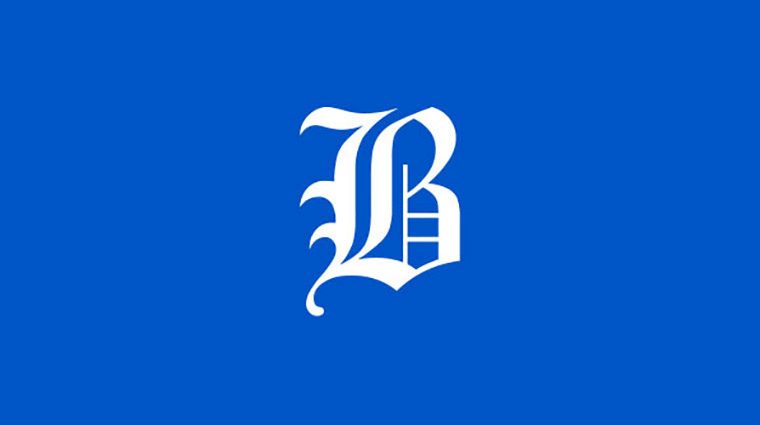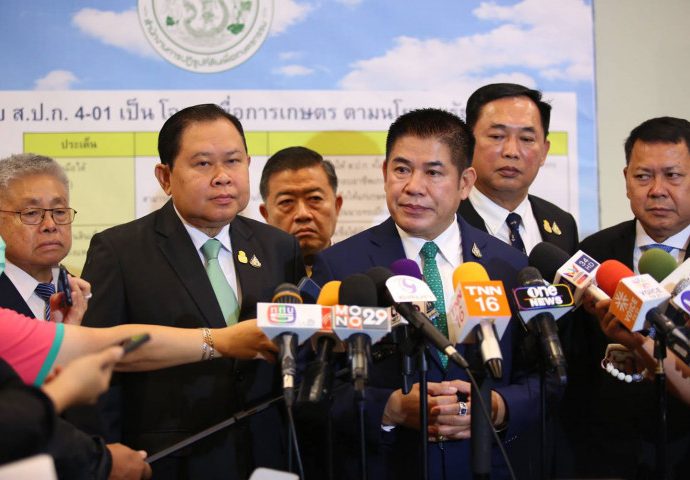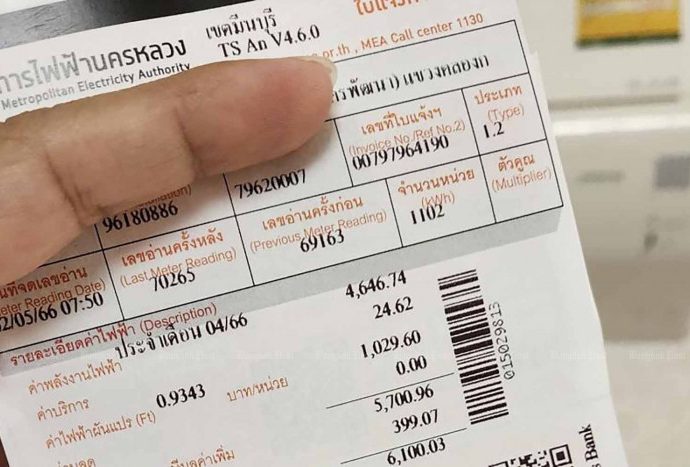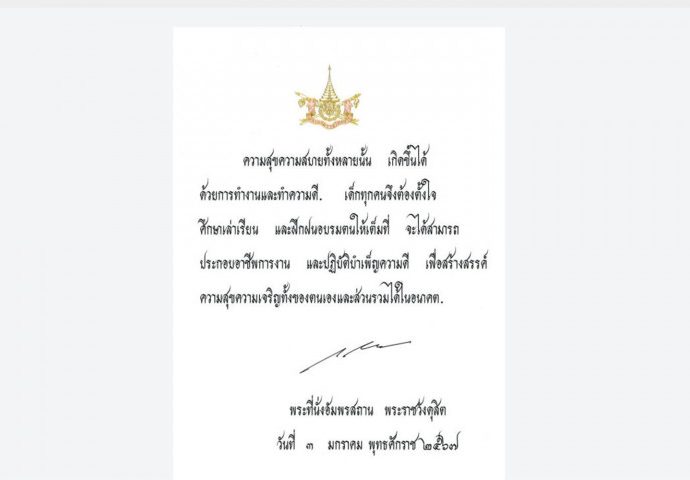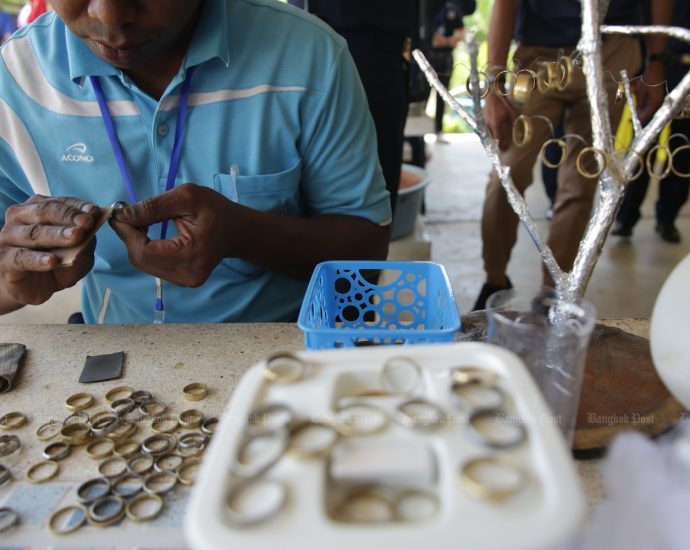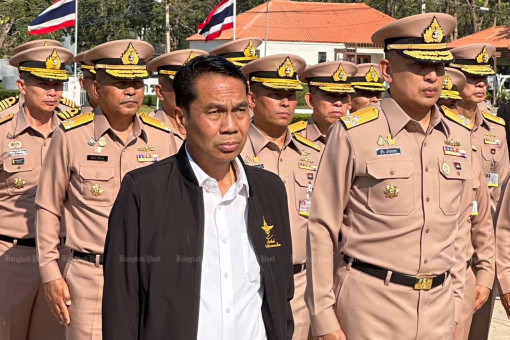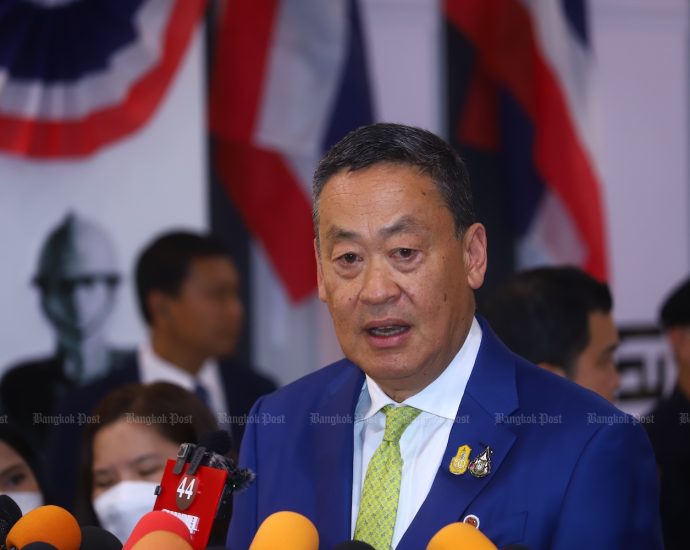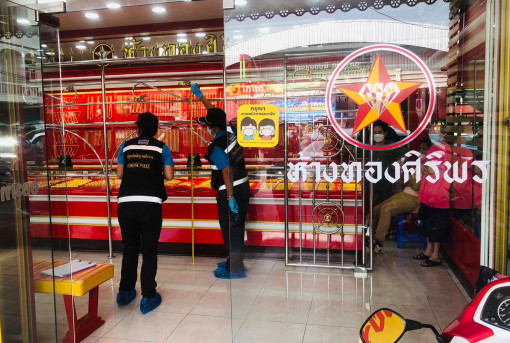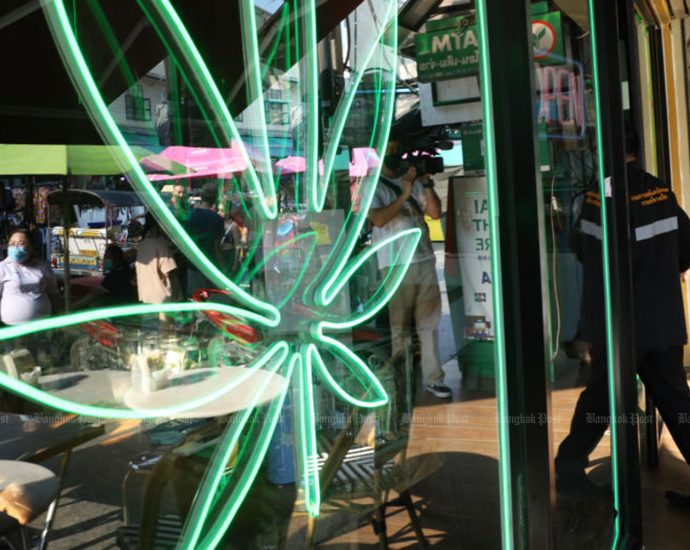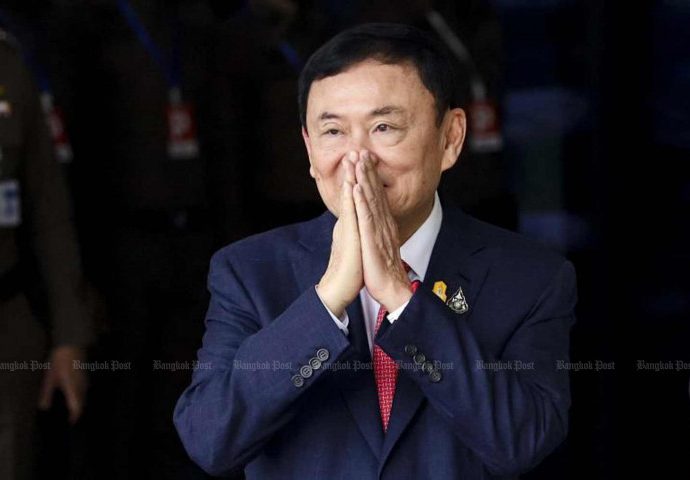Govt won’t meddle with BoT policy: PM

Srettha aims to meet gov on weekly basis
The government respects the central bank’s independence and would never interfere with any of its decisions, according to Prime Minister Srettha Thavisin.
However, he expressed his wish to meet the governor of the Bank of Thailand (BoT) on a weekly basis in the hope of improving their work consistency.
Mr Srettha and BoT governor Sethaput Suthiwartnarueput met yesterday at Government House to discuss the central bank’s strategy for raising the policy rate.
The meeting was held after Mr Srettha voiced his opposition to the policy, saying it would cause problems for the poor, as well as for small-and medium-sized businesses.
On Sunday night, he posted on X that the central bank is planning to raise its policy rate.
Speaking after meeting Mr Sethaput, Mr Srettha said he had no authority to interfere with the central bank’s interest management policy.
He said he discussed with the governor the overall economic situation in Thailand, the global economic situation, Thailand’s negative inflation rate, the domestic market, and how people were being affected by all of this.
The PM said he also discussed with the BoT governor the issue of negative inflation, which has been occurring for several months now following the government’s interference in oil and electricity prices — moves carried out with the aim of helping to curb living costs.
“In this regard, I have told the BoT governor that we should meet up over a coffee every week. If he wants me to go to the BoT’s headquarters, it’s okay. I can do that because we need to be in constant communication,” he said.
Mr Srettha, who is also the finance minister, said he did not discuss with the BoT the government’s plans for its 10,000-baht digital money handout scheme as that matter could be discussed later at a meeting of the main parties involved in implementing it.
Pichai Naripthaphan, deputy chairman for strategies and politics of the ruling Pheu Thai Party, meanwhile, elaborated on his recent call for the BoT to come up with more financial policies to help revive the economy, which has been in a sluggish state for years.
Considering the various financial tools at its disposal, the BoT could help support the government’s efforts to revive the economy, he said.
The BoT’s authority to regulate commercial banks is one of these mechanisms, he said.
Public discontent has been rising after it was known that these banks had in the past year netted 220 billion baht in combined profit, while the country’s economic situation was not good, he said.
The BoT could help by better controlling these banks in terms of their profit margins, he said.
In 2020 when the entire country was badly affected by the Covid-19 pandemic and its economic consequences, which resulted in negative 6.1% economic growth, commercial banks here netted 146 billion baht in combined profits, said Mr Pichai.
Most if not all commercial banks in other countries at the same time recorded heavy losses, he noted.
That has raised doubts over the BoT’s efficiency in regulating commercial banks, preventing them from making too much profit and ensuring sufficient access to loans offered by these banks, he said.
Mr Pichai also outlined areas of work the BoT is encouraged to do more to help boost the country’s economic growth.
The BoT should demonstrate to the public what it can do to help accelerate the country’s slow economic growth, tackle the more than 16.5-trillion-baht household debt (90% of gross domestic product), improve the situation of bad debts facing small- and medium-sized enterprises and other problems involving debt.
On top of those things, it must also deal with negative inflation which has continued for three months and now risks become deflationary, and improve the negative value of exports and low liquidity in the country’s economic system, said Mr Pichai.
“I’d like the BoT to offer an explanation as to what it could do to help tackle these problems because it always said everything is going well and the country’s economic engine is going full steam ahead,” said Mr Pichai.

